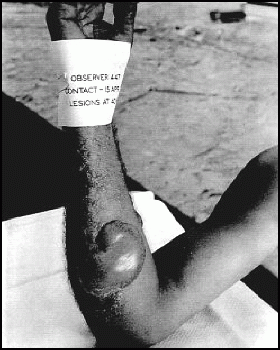 |
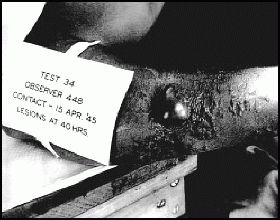 |
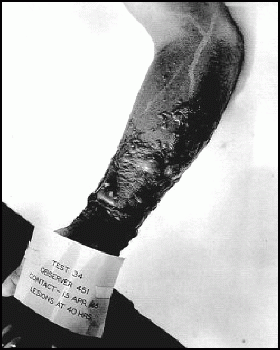 |
 |
 |
 |
Shortly after World War II America began it’s biological and chemical weapons programs. Former Nazi and Japanese scientists were used in the founding of the American programs because they were leaders in the field at the time. What is more important though is that tests of biological weapons were conducted in the United States on private citizens, sometimes with permission and sometimes without their knowledge. In addition, tests of biological agents have been run in locations around the world including Asia, South and Central America, and the Caribbean. There are documented links between diseases that have infected local populations of plants, animals, and people in those areas and both American and Russian biological testing programs.
Originally the biological and chemical weapons programs were classified as defensive, but offensive weapons were later developed.
According to the Federation of American Scientists the American biological weapons program of the 1940s through the 1960s produced:
Simulants are biological agents that are theoretically harmless.
Many tests using simulants took place in urban areas including places like subways. These tests were always performed in the presence of the public without public knowledge.
There is evidence, however, that some of the simulants used did produce harmful results in some of the people who were unwittingly exposed, as in the 1950 case of Edward .J Nevin. Nevin’s death was determined to be related to Serratia marcescens, which was released over the city of San Francisco in a Biological weapons experiment.
http://www.mindfully.org/Reform/Military-Germs-US-Cities.htm
Many studies of active pathogens used volunteers both paid and non-paid, military and non-military, however what has been shown is that the risks involved were often not properly communicated to the volunteers. Many tests have also been performed on animals and plants, both in controlled environments and also "in the wild".
Between 1949 and 1969 the US performed as many as 239 open-air trails of simulants and active pathogens. All of these tests were done without public knowledge.
The most prominent germ warfare test site was Dugway Proving Grounds in Utah, though there were others all around the country.
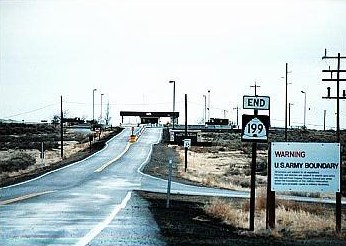 |
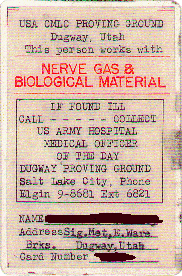 |
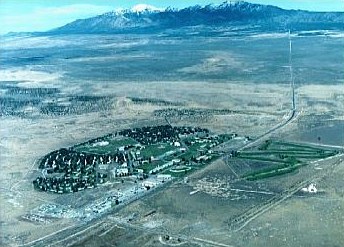 |
What is significant about the tests is that they often introduced diseases to areas that had not previously been exposed to those diseases. Some of the diseases now prevalent in Utah that are attributed to these tests are encephalomyelitis, Rocky Mountain spotted fever, psittacosis, Q fever, anthrax, brucellosis, plague, tularemia, and hydatid disease.
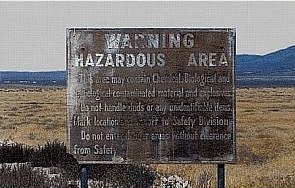
Other actions that have proven to be problematic are the use of live wild animals as tests subjects. Tests using live animals involved infecting animals with biological weapons agents and releasing them into the wild to determine the range and rate of spread of the diseases.
Significant outbreaks of VEE, Venezuelan equine encephalitis, that continue to plague Central America have been linked to germ warfare experiments run by America in the region.
More on VEE here:
http://www.vnh.org/BIOCASU/14.html
It should be noted that the experiments themselves have proven to be extremely beneficial to advancing our understanding of biological agents, how to defend against biological attacks, and in advancing our general understanding of pathogens. The primary issue with the American bio/chem –weapons program up through 1969 was the level of secrecy and the fact that large numbers of people were unwittingly made part of germ-warfare experiments, as well as the persistent lack of public knowledge about the nature of these programs today.
For more on the subject of American biological weapons testing see:
http://home.comcast.net/~kknowlto/
http://www.fas.org/nuke/guide/usa/cbw/bw.htm
http://www.fas.org/bwc/papers/review/post.htm
http://www.thebulletin.org/issues/2001/ma01/ma01choffnes.html
http://www.duotone.com/coldwar/biowarfare/
| Previous | Next | Contents |
|
| ||||||||||||||||